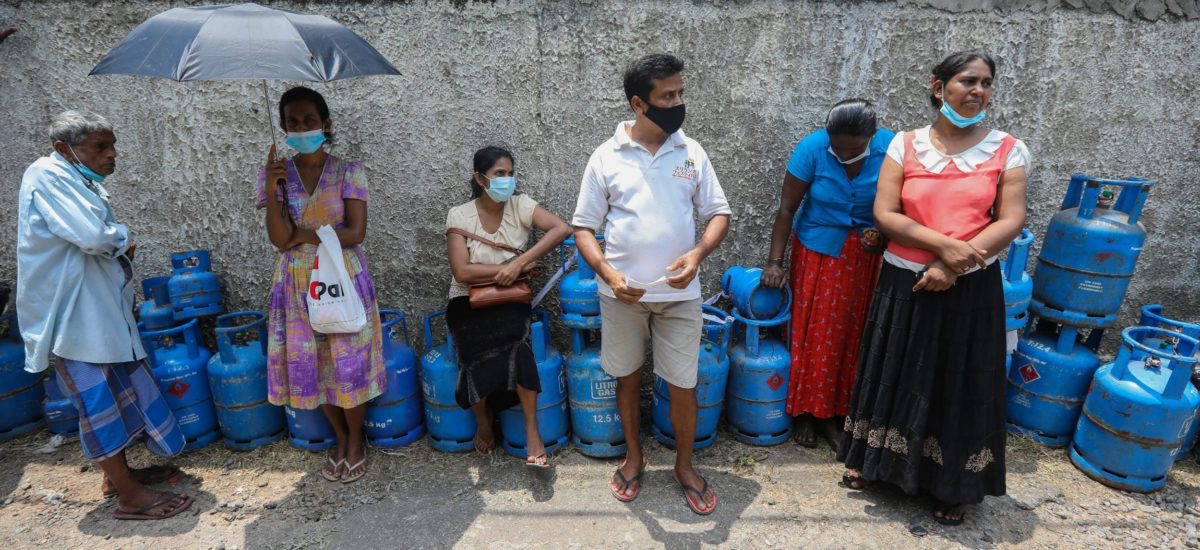Photo courtesy of The Telegraph
Sri Lankan citizens have successfully done what was unimaginable two years ago – ousted the Rajapaksa brothers from power well before any scheduled elections. The public found themselves victims of the Rajapaksa government’s woefully inadequate economic policies that have cut off essential imports and left the country at the mercy of aid and goodwill of friendly nations.
Former president Gotabaya Rajapaksa seemed to express remorse of his stewardship in his resignation letter but his behaviour in parliament last week, seated next to Ranil Wickremesinghe, casts doubt on this remorse. Does he truly comprehend the gravity of the mess he leaves behind? The lives, dreams and aspirations of millions destroyed, perhaps for generations.
Moreover, do the other political actors understand the gravity of this mess we are in? The political squabbling over who will take over the role of the president seems to suggest otherwise. It is hardly surprising, save a few members of parliament, many are completely detached from the reality of the economic crisis.
They do not understand the plight of the poor mother or father who must watch as their children cry in hunger, they do not comprehend the heartache of a man watching his pregnant wife having to survive on just one meal a day. They live in a bubble in which suffering is but a word. But this is what the Rajapaksa’s have done to Sri Lankans. For many poor Sri Lankans life was not easy before the pandemic nor the crisis, but now it is surely unbearable.
Yet, our political leaders continue to waste time squabbling over power. Gotabaya Rajapaksa wasted many months before ultimately accepting defeat, as did his brothers Mahinda and Basil. Ranil Wickremesinghe did not do much better. He warned of difficult times, he said he would assure people had three meals a day, he would present an interim budget in the end of June. But the end of June has come and gone, and an interim budget is nowhere in sight.
The government has made no efforts to trim its expenditures, nor much effort to shore up its revenues. The Central Bank is trying hard with its monetary policy, but there has to be complementary fiscal policy to have an impact. The need of the hour, therefore, is an economic plan to save Sri Lanka and its people. Sri Lanka is rapidly running out of time. The longer the government delays, the more lives that will be lost, the more children that starve.
Now with a presidential election in parliament set to take place next week, it is further delay. It is already well past mid-July, so unless the newly appointed government hits the ground running, it is likely to be more delays. Some economic reforms are contentious and politically undesirable, it may cut you off from your voters or your financial backers. But now is not the time to think about personal political futures, but to deliver to the country the reforms desperately needed. Sri Lanka simply does not have time for political games.
The effects of delayed and appropriate economic reaction are significant. Malnutrition among children and pregnant women is on the rise, medicines to treat normal illnesses are out of reach for many poor people. This signals an alarming health crisis on the horizon. Sri Lanka had made leaps and bounds in several of its health indicators, the public health sector delivers world class results. But now it is short of essential medicines to treat patients, healthcare workers are unable to get to and from work due to the fuel shortage, ambulances are stuck in fuel queues. The medium to long term impacts of delaying economic reforms are dangerous.
The social crisis that is brewing is also alarming. With migration statistics hitting new highs, the possibility of massive human capital flight seems inevitable. Highly skilled workers, such as IT sector and healthcare workers departing the country en masse does not bode well for Sri Lanka’s economic recovery. The departure of technical knowhow and industry expertise is detrimental. The longer the country takes to set itself on a path of recovery, the higher the chances of a complete collapse in human capital left behind in Sri Lanka.
If the possibility of these do not frighten anyone involved in economic planning, such as our parliamentarians, it is only because they lack the intellect to comprehend the sheer magnitude of the crisis Sri Lanka faces. There are only a handful of present parliamentarians who are able to grasp the depth of the abyss Sri Lanka is in, therefore, it is important that these parliamentarians be a major part of the forthcoming government. Sri Lanka cannot afford another Gotabayaesque leadership in which expertise is disregarded or misunderstood. Too many lives and futures hang in the balance.


